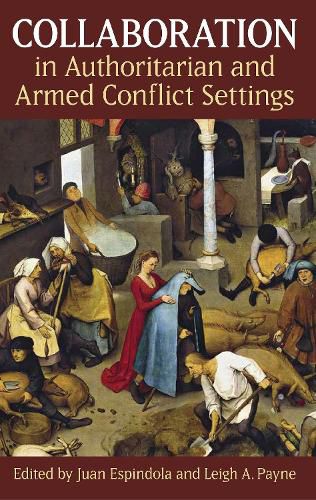Readings Newsletter
Become a Readings Member to make your shopping experience even easier.
Sign in or sign up for free!
You’re not far away from qualifying for FREE standard shipping within Australia
You’ve qualified for FREE standard shipping within Australia
The cart is loading…






Who is the collaborator, or in whose eyes? What is the motivation to collaborate: for material gain, for ideology, for duty? When is collaboration betraying a hated enemy, and when is it something else: personal revenge or an instrumental, rational, or even coerced response to a situation, for example? Why do collaborators meet such harsh punishment and stigma when they are revealed as such? Can they ever atone or find redemption? Beyond the perception of the stakeholders involved, how harmful is collaboration? Does it exacerbate or abate violence? Is it always evil or can it sometimes be seen as mitigating wrongs? The chapters in Collaboration in Authoritarian and Armed Conflict Settings explore these thorny questions through a set of case studies, disciplinary approaches, and temporal and regional contexts. They show the range of the types of collaboration; the ubiquity of collaboration across time, countries, political systems, and political and cultural conflicts.
$9.00 standard shipping within Australia
FREE standard shipping within Australia for orders over $100.00
Express & International shipping calculated at checkout
Who is the collaborator, or in whose eyes? What is the motivation to collaborate: for material gain, for ideology, for duty? When is collaboration betraying a hated enemy, and when is it something else: personal revenge or an instrumental, rational, or even coerced response to a situation, for example? Why do collaborators meet such harsh punishment and stigma when they are revealed as such? Can they ever atone or find redemption? Beyond the perception of the stakeholders involved, how harmful is collaboration? Does it exacerbate or abate violence? Is it always evil or can it sometimes be seen as mitigating wrongs? The chapters in Collaboration in Authoritarian and Armed Conflict Settings explore these thorny questions through a set of case studies, disciplinary approaches, and temporal and regional contexts. They show the range of the types of collaboration; the ubiquity of collaboration across time, countries, political systems, and political and cultural conflicts.